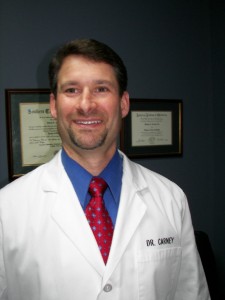
Our eyes have the ability to focus on objects as such objects come closer to the eyes. This built in auto-focus is pretty amazing, and allows the eyes to rapidly focus even very small objects. This is accomplished by the lens inside the eye flexing. The closer something is, the more the lens has to flex. Exactly the same as a camera, it has to adjust depending on how close the object appears. If the object is in the distance, the eye relaxes its focus to clear the image.
This focusing system of the eyes—called accommodation—weakens as we age. As adults, we all lose a little more focusing every year we age as the lens becomes less flexible and the small muscles that control accommodation weaken. For most of us, this becomes apparent as we age past 40, when small reading material becomes more difficult to see. The solution to this, at first, may simply be holding reading material further away, followed by reading glasses or bifocals. As we age, the need for near vision correction becomes more and more pronounced. There is a stopping point where near correction stabilizes and stops changing, usually around age 60.
Dr. Carney is available for all your eye care needs by appointment at Wallace Eye Associates by calling (318) 448-0221.









